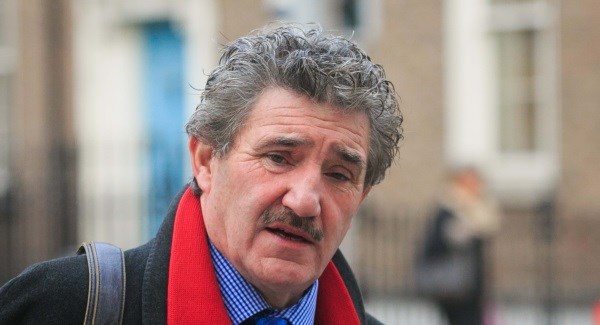If I were interviewing a candidate for private secretary, I would certainly ask her – or him – whether they were married, and if they had a family. It is a perfectly sensible question, and – in the public realm – it is a matter for the record.
All census forms, and all books of reference ascertain marital and family status. The standard reference book, Who’s Who – regarded as the first port of call in researching those in public life, or in the employ of the State, when I was a rookie journalist – requires that those listed state whether they are married, and to whom, and if they have issue, also duly listed.
Public event
A marriage is a public event, which is recorded in the annals of the State. Every child born must be registered by the State. So why is it offensive to ask a person if they are married or single?
I don’t, personally, think that John Halligan, the Independence Alliance Minister, did anything wrong in asking a woman whether she was married or had children, and I don’t think it is edifying that the lady received €7,500 in compensation on grounds of “discrimination”. Many a plaintiff has received less compensation for a serious bodily injury.
I believe Mr Halligan when he says that he merely wished to stress that he operated a ‘family-friendly’ policy, but that is not really the point. The point is that whether a person is married, or has children, is not just a private matter: it is on the public record.
In the Catholic Church, there has been a long and often thoughtful debate about celibacy, and the pros and cons of the single versus the married state have been thrashed out repeatedly. You could even say it started with St Paul.
A single person can give his (or her) whole commitment to a vocation. A single person does not, usually, have the same amount of family responsibilities to juggle with, alongside a job. On the other hand, a single person may feel the need for the support of a partner. Family life is good for people, but it’s not for everyone, and it is also a responsibility. We have been over all these issues and we have seen that they can be relevant to a job, career or vocation.
Childcare is a huge focal point for parents, and whether a job fits with family responsibilities is, to me, an entirely fitting question.
*****
‘West Brit’ is a very broad term
The Sinn Fein Lord Mayor of Dublin, Micheal MacDonncha, disparaged the “West Brits who still run Irish rugby”, for not sticking with ‘Amhrán na bhFiann’ on the playing field. ‘West Brit’ is a term seldom used these days. It is sometimes explained as meaning “a person who thinks British culture superior to Irish culture”.
But this was not the original meaning. ‘West Brit’ could be someone who was Anglophile, or it could be a traditional Irish Protestant. The late author Brian Inglis, who grew up in an Irish Protestant family in Malahide, wrote a memoir called West Brit – admittedly with a degree of irony, as Brian didn’t identify with his own caste. But it could also apply to the group known as Southern Unionists – both Protestant and ‘Castle Catholic’ who, like Edward Carson, regretted Ireland’s break with the Union of England, Ireland, Scotland and Wales.
Many a ‘West Brit’ could also be patriotically Irish – Irish Anglican clergy in England found themselves addressed as ‘Paddy’, and embraced the term. Identities can be fluid. Mayor MacDonncha, after all, wears the ceremonial chain of William of Orange around his own neck when the occasion calls for formality.


 Mary Kenny
Mary Kenny Minister John Halligan
Minister John Halligan 